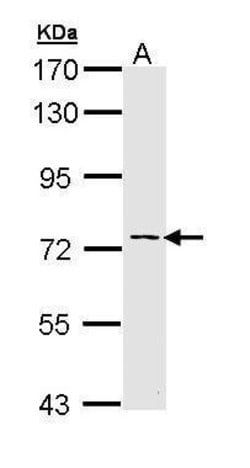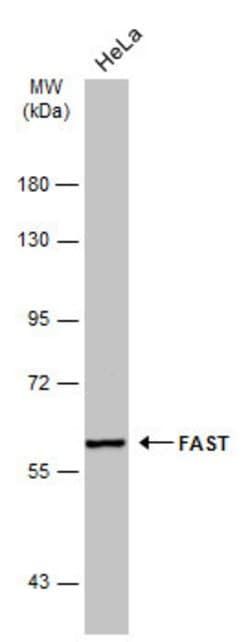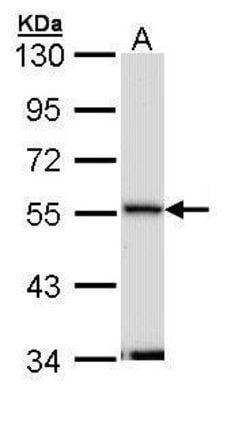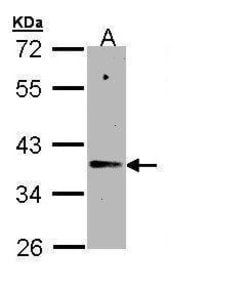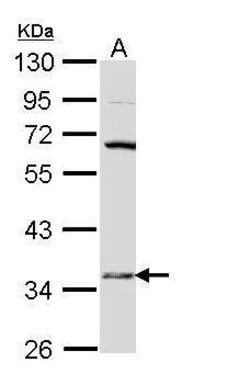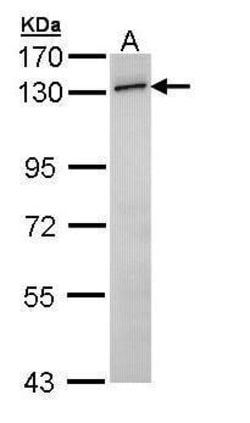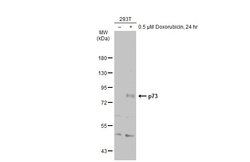NAPSA Polyclonal Antibody, Invitrogen™
Manufacturer: Thermo Scientific
Select a Size
| Pack Size | SKU | Availability | Price |
|---|---|---|---|
| Each of 1 | PIPA528924-Each-of-1 | In Stock | ₹ 48,905.50 |
PIPA528924 - Each of 1
In Stock
Quantity
1
Base Price: ₹ 48,905.50
GST (18%): ₹ 8,802.99
Total Price: ₹ 57,708.49
Antigen
NAPSA
Classification
Polyclonal
Conjugate
Unconjugated
Gene
NAPSA
Gene Alias
asp 4; ASP4; Aspartyl protease 4; KAP; Kdap; KDAP-1; kidney-derived aspartic protease-like protein; Nap; NAP1; NAPA; Napsa; napsin A aspartic peptidase; napsin-1; Napsin-A; pronapsin; pronapsin A; SNAPA; TA01/TA02
Host Species
Rabbit
Purification Method
Antigen affinity chromatography
Regulatory Status
RUO
Gene ID (Entrez)
9476
Content And Storage
Store at 4°C short term. For long term storage, store at -20°C, avoiding freeze/thaw cycles.
Form
Liquid
Applications
Western Blot
Concentration
0.57 mg/mL
Formulation
0.1M tris glycine with 10% glycerol and 0.01% thimerosal; pH 7
Gene Accession No.
O96009
Gene Symbols
NAPSA
Immunogen
Recombinant fragment corresponding to a region within amino acids 67 and 292 of Human Napsin A
Quantity
100 μL
Primary or Secondary
Primary
Target Species
Human
Product Type
Antibody
Isotype
IgG
Description
- Recommended positive controls: 293T, A431
- Predicted reactivity: Mouse (80%)
- Store product as a concentrated solution
- Centrifuge briefly prior to opening the vial
- Napsin 1 is an aspartic protease that is generally expressed in the lung, but also present in kidney and in metastatic carcinomas throughout the body
- Napsin 1 processes surfactant protein B in healthy pulmonary and renal tissues, but is abnormally regulated when carcinogenesis occurs
- Thus, many researchers have found napsin evaluation to be useful in identifying several cancers, and differentiating primary tumors from metastases
- When combined with thyroid transcription factor analysis, napsin can be used as a specific biomarker for differentiation of carcinoma types
- Napsin has also been associated with pulmonary alveolar proteinosis as well as in protein catabolism in renal tubules.

